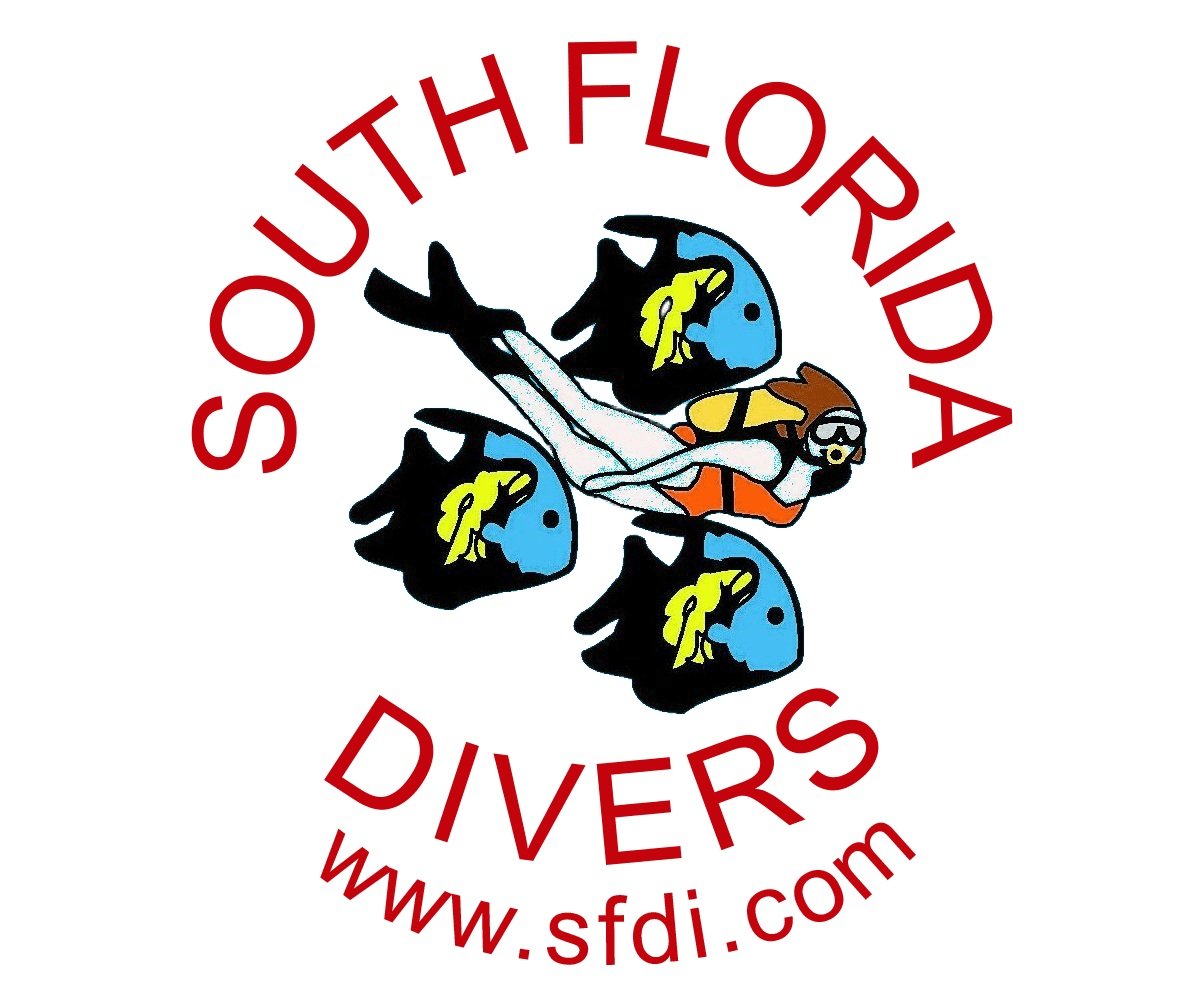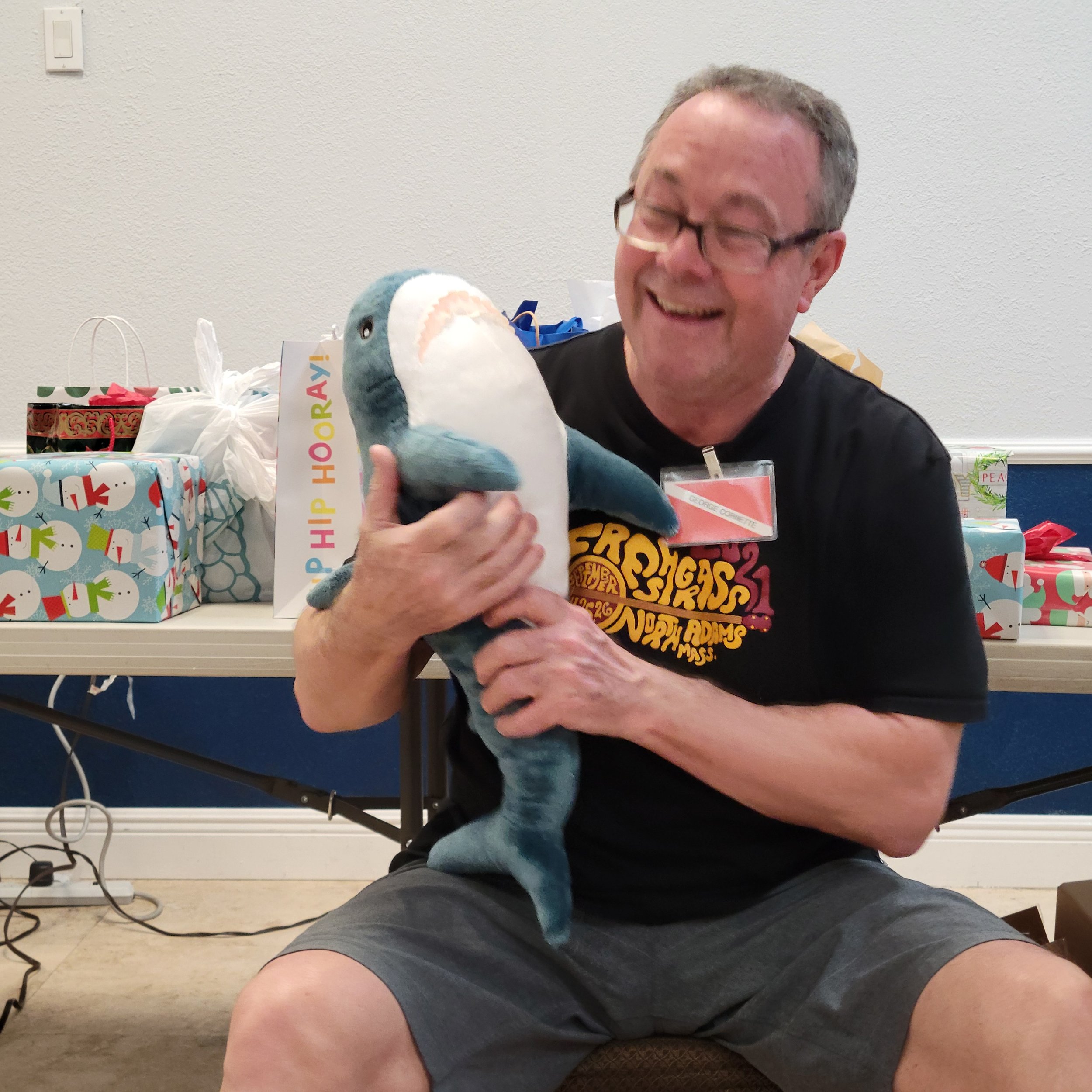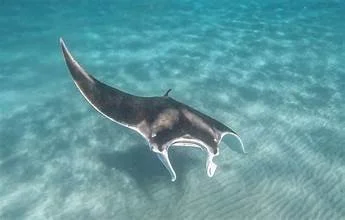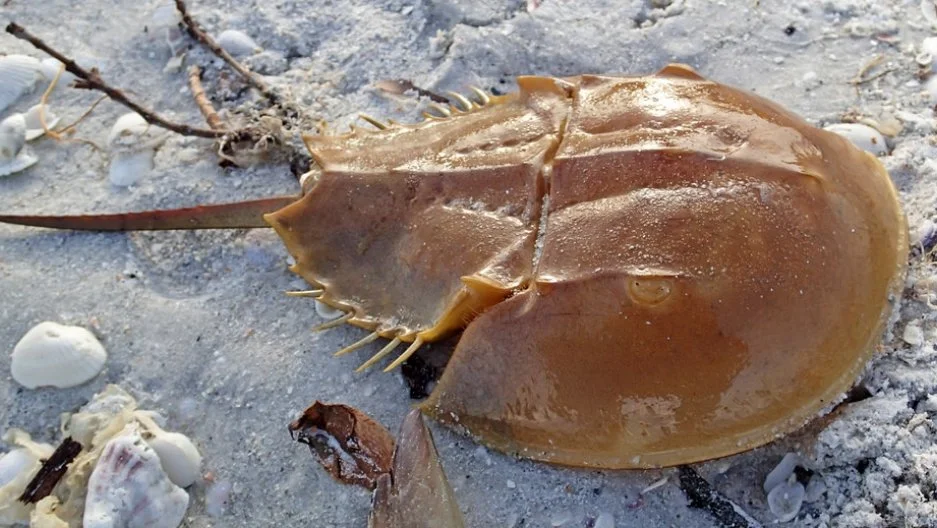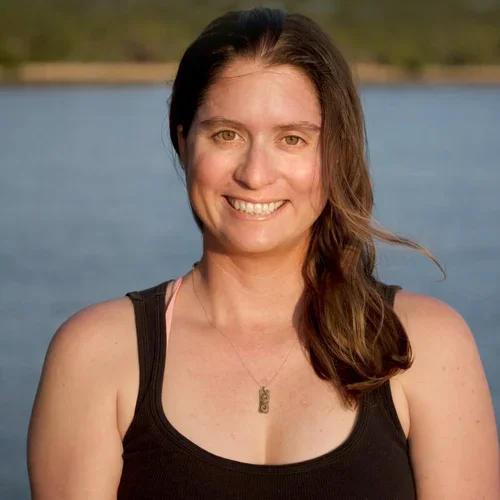
JANUARY 2026 Wacky Gift Exchange
Each person brings a gift to the Wacky Gift Exchange. Please don’t bring junk, keep to approximately $20. Place your gift in the stack of gifts and you receive your number. When your number is called, you have 2 choices: 1) pick a gift from the stack or 2) steal a gift from someone who has already picked.
The art of the steal. Great going Steve!!
DECEMBER HOLIDAY PARTY
Saturday, Dec 6 — 6:30pm
Dinner is provided
There will be an open bar.
Guests are encouraged to bring an appetizer or dessert. The cost is $15 for members and $20 for non-members.
I.T. Parker Center, Dania Beach
901 NE 3rd Street, Dania Beach, FL 33004
Enter into the marina complex and follow small signs - going around the marina buildings, heading east. The center is at the end, on the water.
NOVEMBER - Jessica Pate, UNC, FAU
The mysterious manta rays of Florida
Jessica will be talking about manta ray biology and global manta ray conservation, as well what discoveries that she has made about Florida’s manta rays. She has studied sea turtles in Florida, Central America, and West Africa. You will also find out how to become a citizen scientist and contribute to important manta ray research! In 2016, Jessica started the Florida Manta Project to study the biology and ecology of manta rays in South Florida and has discovered a potential rare nursery habitat. The Florida Manta Project is the first dedicated study of manta rays in the continental U.S.
Jessica Pate
Jessica Pate has an undergraduate degree from UNC-Chapel Hill and a graduate degree from Florida Atlantic University. She has taught marine biology on traditionally rigged schooners and has crossed the Atlantic Ocean by sail. Jessica’s research interests focus primarily on the biology, ecology and behavior of imperiled marine species to inform management decisions. While she began her career collecting data on sea turtle populations, she now researches a never-before studied population of manta rays in south Florida. Jessica is interested in understanding the environmental drivers of spatial and temporal distribution, life history traits and anthropogenic impacts on Florida’s manta rays. She utilizes a range of methodologies including underwater photography, aerial surveys, satellite and acoustic telemetry, genetics, and sociological surveys to answer her research questions. A key component of her research is involving local stakeholders in data collection and conservation, as well as raising awareness of marine conservation issues to the general public.
OCTOBER - James Ferrara, Photography and Diving in Antarctica
Our esteemed guest speaker, James Ferrara, will deliver an informative presentation on his recent month-long expedition to Antarctica. His talk will encompass various topics, including the how the journey came about, logistical considerations, the daily routine aboard the vessel, the crossing of the Drake Passage, the equipment used for diving and photography, and the visual encounters with icebergs, whales, penguins, and leopard seals. At the end of presentation, James will open up the floor to any questions the members may have.
